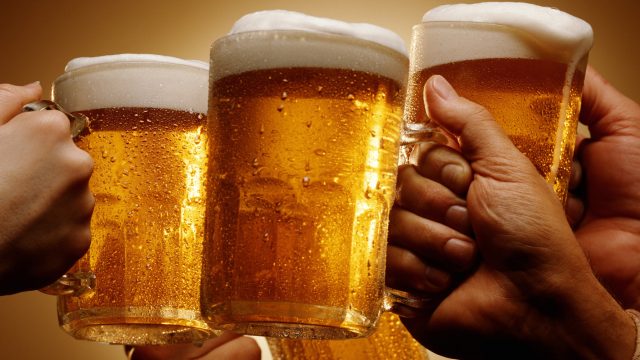Error In Legislation Means Earlier Sunday Booze Sales Might Not Be Legal

FOUR HANDS MALE AND FEMALE TOAST WITH MUGS OF BEER
One of the more hotly contested bills during the 2015 legislative session earlier this year was the so-called “brunch bill.” That bill changes the law to allow bars and restaurants to begin serving alcohol on Sundays an hour earlier, at 11:00am instead of noon.
Or did it?
Here’s the relatively simple change to the law made by HB1434, which was backed by Rep. Marie Strinden, and Democrat from Grand Forks:
Seems straightforward, right? The bill modified the portion in the code referencing when booze can be sold on Sundays and changes it to an hour earlier (the change is only for on-sale establishments, not liquor stores). Except, that’s not the only place in the code where the Sunday booze sales time is referenced. In the very next section of Century Code, 05-02-05.1 we get this in section 3:
The intent of the legislation is clear. Anyone who listened to the debate over HB1434 knows that lawmakers thought they were changing the law to allow on-sale booze transactions to begin an hour earlier. But because the folks who drafted the bill’s language forgot to change this second portion of the code, and because nobody in the Legislature caught it, what they’ve created is a situation where the law is not prohibiting Sunday booze sales starting at 11:00am but also not giving local governments permission to permit those sales.
And fixing that error isn’t easy. For one thing, the Legislature isn’t in session again until January of 2017. For another, this legislation passed by narrow margins. It got a 49-42 vote in the House, though the losing side made a motion to reconsider the vote which failed. In the Senate the bill failed the first time it was considered 23-22, but passed subsequently on a 27-18 vote after a reconsideration motion was successful in that chamber.
What this means is that there are no guarantees that this will would pass again if taken up by the 2017 Legislature. This puts the bars and restaurants in the state in a ticklish position.
“The challenge is that like any other industry we like regulation to be stable and predictable and certain,” Rudie Martinson, the executive director of the North Dakota Hospitality Association, told me. “It’s been a bit frustrating.”
Martinson’s organization is an industry group which represents bars and restaurants in the state. He says this uncertainty could have a big impact on business.
“It’s an hour on a Sunday, and there are 52 Sundays in a year,” he said. “We talk about it’s only 52 hours, but it’s 52 pretty critical hours particularly during football season. Right during the height of football season when we have games that start at noon, or 11:00am in the western part of the state, those hours are key hours for people who are going to come out to the game.”
Asked how his industry was handling the situation, Martinson said he’s telling his members to follow the lead of their local governments. “I have advised folks that have licenses to follow the guidance of your city or county, whoever it is who issued you your liquor license. At the end of the day they’re the ones who are going to govern that and penalize you if you are not in compliance with their regulations.”






